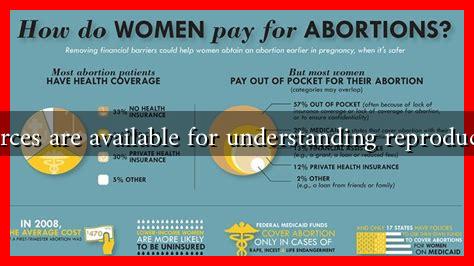-
Table of Contents
What Resources Are Available for Understanding Reproductive Rights?
Reproductive rights encompass a broad range of issues related to the ability of individuals to make informed choices about their reproductive health. This includes access to contraception, abortion services, maternal health care, and comprehensive sex education. Understanding reproductive rights is crucial for advocating for personal autonomy and public health. Fortunately, a wealth of resources exists to help individuals navigate this complex landscape.
Educational Organizations and Advocacy Groups
Numerous organizations focus on reproductive rights, providing valuable information, advocacy, and support. Here are some key players:
- Planned Parenthood: A leading provider of reproductive health care, Planned Parenthood offers extensive resources on contraception, abortion, and sexual health. Their website features educational materials, health services, and advocacy tools.
- The Guttmacher Institute: This research and policy organization focuses on sexual and reproductive health. They publish reports and studies that provide data on reproductive rights, including statistics on abortion access and contraceptive use.
- National Women’s Law Center (NWLC): The NWLC advocates for policies that protect and advance women’s rights, including reproductive rights. Their resources include legal analyses, policy briefs, and information on current legislation.
- American Civil Liberties Union (ACLU): The ACLU works to protect individual rights and liberties, including reproductive rights. They provide legal resources and advocacy tools to help individuals understand their rights.
Government Resources
Government websites can also be a valuable source of information regarding reproductive rights. Here are some key resources:
- Centers for Disease Control and Prevention (CDC): The CDC offers data and statistics on reproductive health, including maternal health, contraception, and sexually transmitted infections (STIs).
- U.S. Department of Health and Human Services (HHS): HHS provides information on health care services, including access to reproductive health care through programs like Title X.
- State Health Departments: Many state health departments provide localized information on reproductive health services, including family planning and maternal health programs.
Books and Academic Journals
For those seeking in-depth knowledge, books and academic journals can provide comprehensive insights into reproductive rights. Some recommended readings include:
- “Reproductive Rights and Justice Stories” by Melissa Murray, Kate Shaw, and Reva Siegel: This book offers a collection of essays that explore the intersection of reproductive rights and social justice.
- “The Turnaway Study” by Diana Greene Foster: This groundbreaking research examines the impact of abortion access on women’s lives, providing valuable data and personal stories.
- Journal of Reproductive Health: This peer-reviewed journal publishes research on reproductive health issues, including access to care and policy analysis.
Online Courses and Webinars
Many organizations offer online courses and webinars that cover various aspects of reproductive rights. These can be excellent for gaining a deeper understanding of specific topics:
- Coursera and edX: These platforms offer courses on public health, women’s rights, and reproductive health from reputable universities.
- Webinars by the Guttmacher Institute: Regularly hosted webinars cover current issues in reproductive health and rights, featuring expert speakers and interactive discussions.
Case Studies and Statistics
Understanding reproductive rights is often enhanced by examining real-world case studies and statistics. For instance:
- The Guttmacher Institute reports that in 2020, 93% of U.S. counties had no abortion provider, highlighting access disparities.
- Research shows that comprehensive sex education significantly reduces rates of unintended pregnancies and STIs among adolescents.
Conclusion
Understanding reproductive rights is essential for informed advocacy and personal decision-making. A variety of resources are available, from educational organizations and government websites to books and online courses. By utilizing these resources, individuals can gain a comprehensive understanding of reproductive rights, empowering them to advocate for their health and the rights of others. As the landscape of reproductive rights continues to evolve, staying informed is more important than ever.
For further information, consider visiting the Planned Parenthood website or the Guttmacher Institute for the latest research and resources.

